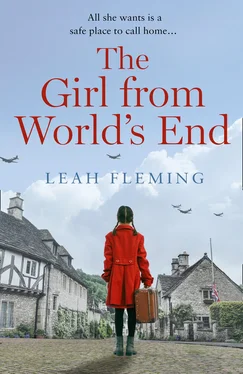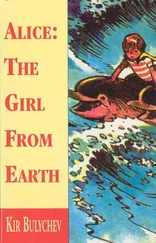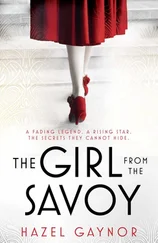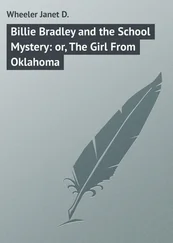Uncle Tom, her mother’s big brother, showed her how to sweep up properly and take water to the cattle in the winter barn. The yard boy helped her scoop oats for the big Clydesdale horses. There was so much to learn and being busy made her forget about starting the new school down at Windebank.
Sometimes in the evening they gathered round the piano and Granddad placed his fingers up and down the keys to find a chord and smiled, showing her a set of gleaming teeth that Carrie said Granny had given him as an early Christmas present. He played tunes without even looking at his fingers. ‘“Just a song at twilight, when the lights are low…”’ His voice was rich and deep, but Granny got upset.
‘Don’t sing that, Joe…George used to sing that in the chapel concert. He was your mother’s brother, Mirren, but he never came home from France. They never found him; so many lost boys. At least you’re a lass and won’t have to face that carry-on.’ She sniffed, pointing to the photo of a soldier in uniform in the black frame on the mantelpiece. ‘That’s yer uncle, God rest his soul. Thank goodness some were spared, but there’s one or two round here who’re not the men they once were; the schoolmaster for one. I’ve heard that Annie Burrows has a lot to put up with these days.’ She lifted her hand as if she was swallowing something from a bottle. Then she saw Mirren watching and put it down quickly. ‘I’m glad to see you’ve signed the temperance pledge. Joe’s a Methodist so we don’t drink.’
‘Was my mam a good singer?’ Mirren asked.
‘She could render a good Messiah chorus when pushed but no solo work. George was our baritone. He’s sorely missed. They don’t do concert parties down Windebank any more. There aren’t enough men to go around now,’ she sighed.
‘Can I learn the piano?’ Mirren asked, hoping to be able to accompany herself singing like Granddad.
‘We’ll see when you’ve done your chores. Chores first and foremost, lass. The farm must come first, then making meals, sewing and mending, church, of course, and if you’re quick about them all, happen you’ll pare off a slice of time for a bit of music but only after you’ve done your homework.’
So that was how Mirren got her piano lessons, driving them mad, thumping out the wrong notes with hammer fingers until she got the knack of placing them correctly, which wasn’t easy. She soon got bored with scales, preferring to read all the books left on the shelf: Boy’s Own adventures that were full of derring-do and excitement. Getting lost in a book was one way to shut out the noisy comings and goings of the farm and the strangeness of her life high on the hills, but most of all the dreariness of Windebank school.
The school in Scarperton was large. There were hundreds of children, from infants to part-timers at the mill. They drilled like soldiers in a barracks, lining up with masters and mistresses to the sound of the bell, the whistle and the booming voice of the headmaster, who eyed up his pupils with interest and shoved Mirren into the class above because she could read well and help others. There were marching songs and country dancing, singing hymns and object lessons about nature and stars.
The school at Windebank couldn’t have been more different. There was one master, Mr Burrows, and his assistant, Miss Halstead. It was a mean matchbox of a building with windows high up on the wall. A big coke stove at one end belched out fumes. It had railings round that smelled of dirty socks and wet wool, and wet knickers now and then. Everyone was mixed up together on benches; the quiet and serious ones with rough boys in holey jumpers and thick boots that stung when they tripped you up.
Miss Halstead took the littler children into another tiny classroom out of the Head’s way after assembly. Mirren went to the front on her first morning to be registered, eager to show off how well she could read and write, but Harold Burrows barely gave her a glance.
‘That’ll do,’ he muttered while she was finishing the page. His breath smelled like Dad’s had done. He pointed her towards the back bench among tall lads who couldn’t read or write much. Everyone stared and then giggled at her accent. At playtime the other girls crowded in a corner but didn’t make friends, just stood staring at her.
It was too far to walk home at lunch so she sat on her own, eating her pasty and apple, trying not to feel miserable.
‘She’s one of them posh clever clogs, a townie,’ sneered Billy Marsden in his jacket with his shirt hanging out of the elbows. ‘My mam heard she was living in a railway hut when they found her.’
‘No…it’s a bungalow,’ she lied.
‘It were a railway shed, fit for donkeys on our farm,’ laughed another lad.
‘Shut up, dumbo. At least I can read,’ she shouted. ‘It was a special carriage all on one level so it is a bungalow.’
‘Who does she think she is, bloody offcumden!’ Billy was not for being outfaced by this newcomer.
‘My granny lives at Cragside and I’m a Yewell, so there!’ Mirren hated being singled out. She just wanted to have a friend and be left alone.
‘So what’re you doing living in a railway hut? Mam says you’re not a proper Yewell. Her mam was a whore who ran away and had a bastard!’ He put his hands on hips, waiting for her to get out of that insult.
Mirren didn’t know what a basted was, or a hoor, but she sensed it was rude and when everyone started laughing she leaped up and flung herself into Billy’s face, scratching his cheek accidentally. ‘Shut up, numpty! You’re as thick as shit!’
Mr Burrows was standing in the doorway of the school. He’d heard none of the teasing and saw only her take action. Everyone stepped back, seeing the look on his face.
‘Gilchrist and Marsden, my desk, this minute. Not another word!’ he screamed, cuffing them both round the ears, not listening to Mirren’s attempt to explain.
‘I don’t want wildcats in this school. If you want to behave like an animal, you can go and amuse the infants in their room. Get out of my sight, Miriam Know-all. You’re too cocky for words, with your town ways and impudence. Hold out your hand.’
The cane struck her palm, bringing tears to her eyes but her mouth was drawn tight, wincing as the next blow hit the palm, biting into her flesh. She was not going to let him see her pain. She took five strokes but Billy Marsden got off with a caution. It wasn’t fair.
She was banished to the infants’ cupboard with her face to the wall. Her hands were stinging and cut but she turned her face to hide her tears. The silent battle of wills with Harold Burrows had begun.
He ignored her in class when her hand was raised to answer a question. She sat sullen and unresponsive to anything he offered to the class as a whole. Billy Marsden left her alone. In fact the whole school pretended she wasn’t there, avoiding her after lessons. It got to the point where there was no point in attending school any more but no one at Cragside had any idea of her unhappiness. If they found out, she might be sent away to the orphanage.
Every morning she waved them goodbye and set off for the track down to the village but once out of sight she veered off on another route. In this way Mirren got to know every nook and cranny of the Yewells’ fields and gullies, becksides and hidy-holes. With her pasty and bottle of milk to sustain her, she could amuse herself for hours. If it was raining there were hidden caves and boulders to shelter under, like the sheep, outbarns full of hay to hunker down in and read the book she’d hidden there at the weekend.
There was this wonderful book called Scouting for Boys , all about making dens and campfires and signalling. It taught her how to lurk out of sight of shepherds and workmen. For days on end she stayed up in the hills but knew soon she would have to return to the school with some excuse of sickness in case the Welfare man came calling to see why she was absent.
Читать дальше












